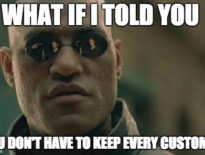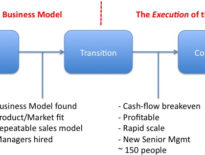
Two VERY different things. Love this question, I mentor in our local High School program and with University incubators and accelerators. Our schools can do better, if we help them do so.
Peter Drucker (economist notable in the 70s and 80s), “Only two things create value in business – Marketing and Innovation; and Marketing is the distinguishing of the two.”
I share that because one of the most invaluable skills you can learn in ANYTHING you do in life, is Marketing.
Not advertising. Not promotion. MARKETING.
- Marketing is what distinguishes Apple from Samsung.
- Marketing is what distinguishes Google from Duck Duck Go.
- Marketing is what distinguishes Tesla from the litany of other cars that are now just as electric and meaningful to the environment.
Marketing is the work of the market, to KNOW WHAT to do, how, where, and why. Marketing tells a business what product to develop, how to price it, where to promote it, and IF it even needs to advertise.
Another great observation from Drucker? “Marketing is the work of making Sales superfluous.” His point, a company (or startup since you’re asking about entrepreneurship) that puts Marketing first, wouldn’t need to pay people to sell it. It wouldn’t need to pay to promote it. Because, the venture/product would be so well designed that it sells itself.
You might not have noticed this yet, but we can refer to distinct examples in business.
- Salesforce (a CRM – customer relationship manager) doesn’t PROMOTE itself; it doesn’t need to, it’s the default Go To platform because it is hands down the best solution. They run a major conference (to teach and connect), they have their logo on one of the tallest buildings in San Francisco, and they nurture their industry, but they don’t Send businesses SPAM email, run radio ads, nor cold call and SELL you. They don’t have to. It’s ideally marketed.
- Contrast that with HubSpot which is another capable CRM. They very heavily promote through content, social media, and more.
- That doesn’t detract from HubSpot! It’s clarifying the distinction… Salesforce KNOWS what it is and how to serve their customers. HubSpot KNOWS that to get the attention of and draw customers from the worlds most popular CRM, they need to get the word out. Marketing.
- Google Adwords or Analytics. No one (at Google) every calls, sells, promotes, or otherwise advertises Google Adwords or Google Analytics. Why? Because the products and brand are so perfectly developed that everyone seeks them out. Marketing.
- Less tech example? Notice that Coca-Cola doesn’t cold call you to sell you Coke nor set up a booth in the store to encourage you to try it? Years ago, Pepsi did just that, it was called the Pepsi Challenge and it was just that, “Take this blind taste test, I think you’ll be surprised to find that you prefer Pepsi.” BOTH, nothing more than flavored carbonated water. Marketing is the difference – Coca-Cola features their brand in theaters, stadiums, and fast food restaurants; they run commercials about how great it is to be refreshed by their red bottle of goodness. Pepsi has to differentiate themselves (and punch line on the Pepsi Challenge Taste Test? People tend to in fact prefer the taste of Pepsi at first, it’s sweeter. Thing is, most people don’t prefer the entire can of Pepsi over Coke). Marketing.
Entrepreneurship is not the same thing!
In fact, there really can’t or shouldn’t be an Entrepreneurship and Marketing class (not to detract from your school if that’s what is available to you).
In fact, you actually can’t teach or learn “Entrepreneurship.”
We’re in the surreal time in humanity where globalization, the fall of the corporation, the loss of the pension and job security, and the sex appeal of “startups,” has us all enamored with “Entrepreneurship.”
Don’t misunderstand… we can TEACH how to start a business. We can teach (incubate) how startups work. But “Entrepreneur” is a personality trait – it’s not a job, it’s not a job title, and it’s not even the same as being a “Business Owner” or “Founder” (two very different things).
Entrepreneur refers to the distinct personality type of people who can’t help but see gaps in the market and move their own resources to do something about them.
At least, that’s how the word was coined by Jean Baptiste Say when, studying the work of Adam Smith in “The Wealth of Nations.” (from 1776!)
Say noted that Smith captured the essence of Business Ownership, the economy, and what it takes to drive productivity as a country. BUT, the work completely neglected the personality that just can’t help but take great risk to try new things. Entrepreneur is often also used to refer to Adventurer.
My wife, at home in her work raising our kids, is VERY entrepreneurial. She couldn’t help but address and personally improve how our swim team raises money. She couldn’t help but get involved in and tackle how the school’s PTA communicates; knowing that it could be more effective and needing to do something about it.
Entrepreneur doesn’t necessarily mean business owner and it doesn’t necessarily mean founder.
An obvious example in successful business leaders and founders? What distinguishes someone like Elon Musk from Mark Zuckerberg?
Clearly, both successful founders, CEOs, and the like. What describes the difference between them??
Musk is clearly an entrepreneur. Zuckerberg is not, relatively speaking. Elon Musk who started PayPal, Hyperloop, SpaceX, and Tesla (whew!), VERY different businesses and each very innovative solutions to challenging problems.
He can’t help it, he’s an entrepreneur.
We can teach you how to build Facebook. We can even teach you how to build PayPal or Tesla. We can’t MAKE you an entrepreneur.
Please appreciate, as I do, I get it that your school, teachers, and administrators are trying to prepare students for the future and I love that we’re exploring these classes, even as called, “Entrepreneurship.” I don’t want to detract from that in the least; in fact, I really just want to accelerate YOUR appreciation of this (and that of other readers) so that they get started knowing what this stuff really takes and HOW to find the right resources, education, experience, and focus to help you thrive. That’s all your school is trying to do and I don’t really fault them for calling the class, “Entrepreneurship,” (it’s what the incubator at our school says too).
Note that hopefully what they’re really teaching is A) how to start a business and B) what it takes to be a startup.
MAYBE you’re entrepreneurial and maybe you’re not (and that’s okay! Entrepreneur doesn’t = better!)
Bottom line. Marketing makes the entrepreneur and that marketing skillset makes everyone invaluable in whatever they do. Learn that, and endeavor to venture forth!





The “founding insight”? that Say refers to-by seeing a gap in the market- CAN be shared. I think that’s really what’s at the root of marketing from an entrepreneurial perspective. An entrepreneur sees what others don’t, and then marketing is the act of conditioning the market to see things from the entrepreneur’s perspective. The “once you see it, you can’t unsee it” effect. To never be able to perceive things in the old light ever again.
Not only can it be shared, most argue it should be shared. Entrepreneurs and founders who tend to hold their ideas as private, under NDAs or patents, tend not to find success. Sharing what entrepreneurs see and want to address are how we get input, feedback, perspective, and support.